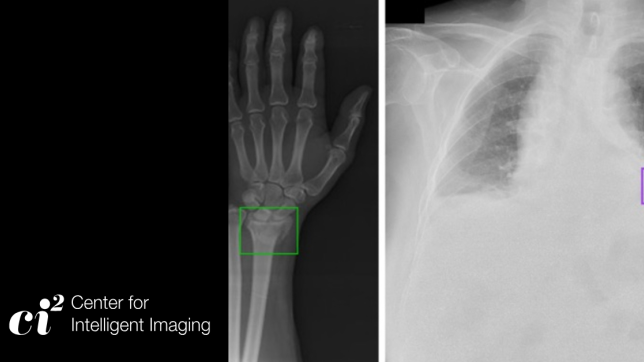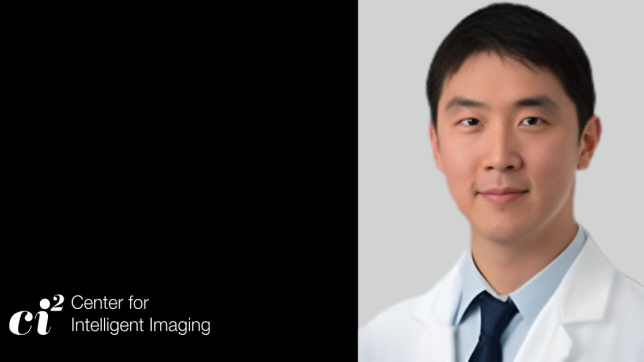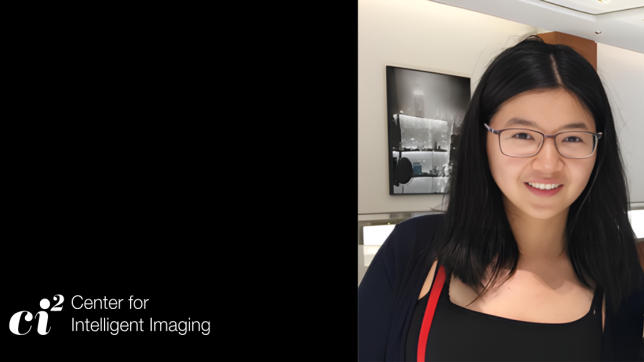A small group of visiting scholars, Rodrigue Reibel and Yassine Guennoun, joins UC San Francisco's Department of Radiology and Biomedical Imaging and Center for Intelligent Imaging (ci2) this summer!
Yassine Guennoun, a student École Polytechnique in France, focuses his research on improving the reliability of deep learning for brain tumor segmentation in MRI scans by quantifying model uncertainty. He joined Rauschecker-Sugrue Lab at ci2 because his research aligns with ci2's mission to build intelligent imaging systems that are accurate, self-aware and clinically trustworthy.
Guennoun focuses on model-agnostic techniques that enhance transparency by modifying the model's outputs and training objective. His research explores uncertainty-aware learning frameworks that better reflect the model's confidence, without altering the core architecture, making them easy to integrate into existing networks and increasing clinical adoption.
Deep learning is central to his work, but he identifies key challenges remain in annotation quality, interpretability and data variability. "Expert-labeled segmentations are scarce, so I rely on refined pseudo-ground truths to scale training," Guennoun says. "I also prioritize voxel-wise uncertainty estimates to make the model's predictions more transparent. Another major difficulty is the heterogeneity of retrospective data—differences in scanner types, resolution, and imaging protocols over time can limit model generalization."
Guennoun's work in artificial intelligence (AI) in medical imaging mirrors the strategies practiced at UCSF. "My approach complements the work at UCSF by targeting a critical blind spot in many deep learning models: their overconfidence in ambiguous regions," Guennoun says. "A model might confidently segment uncertain tumor edges even when the evidence is weak, which poses clinical risks." Guennoun counters this by integrating an uncertainty estimation framework that flags low-confidence regions without modifying the underlying high-performing architecture, making existing models safer, more transparent and easier to interpret in clinical settings.
Improved trust is the next major breakthrough in performance gains. Uncertainty estimations in deep learning models, like what Guennoun implements at ci2, make confident predictions even in unfamiliar or low-quality settings. "Making this confidence explicit, especially in ambiguous or out-of-distribution cases, is essential for supporting clinicians in knowing when to trust the model, and when to rely on their own judgment," he says.
Guennoun describes UCSF ci2 as an ideal environment for translational research in medical AI. "I'm especially impressed by UCSF's strong collaboration between engineers and clinicians; being able to discuss medical nuances directly with residents and fellows is invaluable," says Guennoun.
Rodrigue Reibel is a graduate student at École Polytechnique who specializes in applied mathematics, computer science and cognitive neuroscience. Reibel joined the Rauschecker-Sugrue Lab, and his research focuses on using artificial intelligence to understand high-level cognitive functions such as language acquisition and consciousness. The goal of his visit to UCSF ci2 is to develop innovative tools to support clinical practice. "I was drawn to this internship because it offers a unique opportunity to work at the intersection of neuroscience and AI within a world-class research environment," Reibel says. "UCSF is known for its translational impact, and I was eager to contribute to research that could have real-world clinical applications."
In his work on Deep Brain Stimulation (DBS) for treatment-resistant depression, Reibel is developing a novel algorithm for automated, subject-specific and reproducible targeting that can be integrated into clinical workflows. "The algorithm I'm developing is designed with clinical use in mind and is already being tested in multiple DBS and LIFU trials," Reibel says. "The focus is not on time efficiency but rather on improving treatment efficacy through personalized targeting."
The unique resources available at UCSF Ci2, such as the integration of clinical data with state-of-the-art imaging and computational tools, have been most impressive. "The ability to work so closely with clinicians, neuroscientists, and engineers fosters a truly interdisciplinary environment," he says.
"This collaboration has deepened my expertise in neuroimaging—especially diffusion-weighted imaging, tractography, and functional MRI—with an emphasis on white matter architecture. I now see white matter as a promising entry point for studying cognition and consciousness, and I plan to explore this further in my research back in France."
Join us in welcoming Yassine and Rodrigue to the UCSF Ci2 team for the summer!



